by Ian Shane
Kindle Edition, 409 pg.
45rpm Media, 2019
Read: March 25 – 26, 2019

“. . . you did a bad, bad thing.”
“Then why are you helping me?”
“Because that’s what friends do. Someone needs to stand next to you when the world falls down around your ankles, and the other starting players seem to be leaving you one by one. You’re still my boy, but I question your decision-making skills.”
We meet Danny Jackson on one of the worst days of his life — the day his marriage legally ended (it was over long before). Danny’s quick to assure us that he’s had worse days, and not just because he doth protest too much (no matter what it looks like at the moment). He’s 44, about to be kicked out of his house, in a job he hates (many reasons are bigger than being forced to use Comic Sans, as bad as that is) and really has no idea what the rest of the year will bring — much less anything after that.
One of the many accommodations Danny made to get along with his wife was to trim his 4,000+ CD collection down to 150, and now that he finds himself without a real home or family and a strong need to fill up his time so he can’t dwell on that he starts rebuilding that collection — not with current music, either. But with the songs and albums that defined him at that age where music is so important to define, mold and express one’s identity — college. Before long, Danny’s investing some real money in stereo equipment as well as CDs. At one point a neighbor/friend from the apartment building says something about Danny having enough of both to start his own radio station.
This idea sparks something within Danny and he sets to do just that — not a real radio station (or even a pirate station), but an Internet radio station modeled on the one he learned all about Radio on in college, “The L.” While putting in the work necessary to launch an Internet station, Danny starts dreaming and scheming. I was honestly a little surprised to see how much work was involved, but after reading this I realize that’s just because I know so little about radio (even online) and hadn’t given it any real thought before.
He doesn’t just want to launch this passion project, he’d like to bury the hatchet with a bunch of people from his college days — and what better way to do both together than by launching the station in their old studio while they’re all returning to say goodbye to a mentor as he prepares to retire. Danny’s already speaking for the event, so that part will be easy. He trusts the others will be there, too — getting them to go along with his plans will be the trick.
Danny doesn’t know what kind of audience his online version of “The L” is going to have, but he figures there’s some audience — he’d listen to the kind of station he’ll be launching, why wouldn’t others his age? So kicks off (and then some) this story of friendship, lost loves, abandoned dreams, the love of music, and the attempt to recapture what we’ve lost (through fault of our own, or not). While we follow Danny’s rebuilding in 2017, we also get (in alternating chapters) the story of how the magic was assembled back in the day, and how it primarily fell to pieces (Danny had a significant roll in that, it turns out).
Danny’s glory days really were that (until they weren’t) and it was a lot of fun reading about them — especially when Sam’s on the scene. His 44th year wasn’t that great for him (it did improve from that inauspicious start), but it was almost as much fun to read, especially when Sam’s on the scene. Sam’s the one who got away from Danny, the love of his life, etc. She’s close to idealized, but Shane’s careful not to let Danny do that to her (more than anyone would in memory).
The focus of the novel is (rightly) those two, but Danny’s friendships with Marty — the Program Director of the L — and Tom are easily as important. The novel could’ve worked almost as well with the Danny/Tom relationship as the center instead of Danny/Sam. Tom was Danny’s high school friend who came to college with him and developed a radio show with him, both planning to keep doing radio together after college. One of my few problems I have is that I think we needed a bit more of Tom early on. I know he’s Danny’s partner, and the emotions both have toward each other (in the 90’s and 2017) indicate that, but he always seems to be playing second fiddle to Sam or Marty. Marty’s sort of the older brother figure to Sam, Danny and Tom — down for a good time as well as advice, and is just cool to read.
Mindy, Marty’s co-host, is a character I could’ve used a little more of, too — just because I really liked her. The narrative nowhere needs more of her, but I just liked her and wanted more. The professor, Dr. Black, they assemble to honor is a perfect mentor figure. Even Angela, the adulterous ex- that derailed Danny’s career, is a pretty well-designed and used character — but she’s about the only one in the book I don’t want to see more of.
I don’t mean this next sentence as a negative, no matter what it sounds like. There are few narrative surprises for the reader — by a certain point, you know pretty much how each storyline is going to go. This doesn’t mean that there aren’t surprises (pleasant and otherwise) for the reader, but it’s not that kind of story. You may not know exactly where Plot X will land, but you’ll know the ZIP Code for it early on. And that’s fine — the pleasure’s in the journey, and Danny ending up where you know he will is just a satisfying confirmation.
If you like Danny, you’ll like this book. I’m not sure why you wouldn’t like Danny, but I have to admit it’s possible. I think we clicked almost instantly, I was definitely on board in the first couple of pages. It’s possible you may not like Danny as a person, but would like his voice (well, Shane’s voice), I suppose. That should carry you through, too.
On his website, Shane talks about the impact Aaron Sorkin has on his writing — when you get to passages like this, it’s pretty obvious:
“Why didn’t you tell us?”
“I didn’t think you’d find out.”
“Really?”
“Did you have any idea before today?”
“None.”
“Then it’s a mystery to me as to why I’d think that.”
I can’t help but hear that last line in a Richard Schiff voice. But the book doesn’t only read like the work of a Sorkin-devotee. It has the general feel of Hornby, Tropper, Norman, Weiner, Russo (in his lighter moments), Perrotta, etc. The writing is engaging, catchy, welcoming. Shane writes in a way that you like reading his prose — no matter what’s happening. It’s pleasant and charming with moments of not-quite-brilliance, but close enough. Unlike Sorkin, Shane’s style doesn’t draw attention to itself, if anything, it deflects it. It’s not flashy, but it’s good. I could’ve easily read another 400 pages of these people without breaking a sweat.
You know how maybe the best thing about Zach Braff’s Garden State was that killer soundtrack? That’s almost the case here. Shane has assembled a great playlist on Spotify to go with the novel — stuff that Danny refers to in the book, and stuff he’d listen to. I’ve been introduced to a lot of music that I probably should know through it. Most of what I’ve written in the last week (and some of what I’ve read) has had it as a soundtrack, and that’ll likely hold true for a while longer. I’m embarrassed to admit how little of it I knew going in — Danny, Tom and especially Marty would be ashamed that someone who went to college in about the same time as they did wouldn’t know this stuff. Maybe I should’ve listened to more college radio. Unlike, Garden State, Postgraduate can be read without it (and without knowing the music), but this is a great touch. If for no other reason than there’s going to be a couple of songs you’re going to be curious about after reading about them, this is a great resource.
How much did I like the book? Despite being given a copy (which I’m very grateful for), I bought one. I might give a few away. Danny feels like an old friend, the world is comfortable and relaxing to be in (I should stress about 87.3 percent of what I know about radio comes from this book, so it’s not that). This belongs in the same discussion with the best of Hornby and Tropper — it’s exactly the kind of thing I hope to read when I’m not reading a “genre” novel (the problems with that clause deserve their own post, but you all know what I mean). There’s an eleven year gap between Shane’s first two novels, after reading this you can only hope that his third will arrive much sooner. While I wait for whatever’s next, you should go read Postgraduate. You’ll feel better than James Brown if you do.
Disclaimer: I was provided with a copy of this book by the author in exchange for my honest opinion.
—–



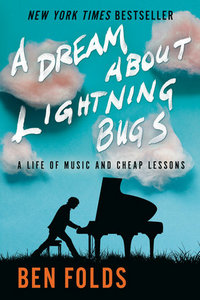

 He has a section about humor records that he listened to as a kid, and muses on comedy in general. It was the first time in the book that things really clicked for me.
He has a section about humor records that he listened to as a kid, and muses on comedy in general. It was the first time in the book that things really clicked for me. There’s a section about life in the suburbs, the angry music associated with it in the 90s (and beyond) and I thought was really insightful.
There’s a section about life in the suburbs, the angry music associated with it in the 90s (and beyond) and I thought was really insightful. The story about the release day for his album Rockin’ the Suburbs and being live on the radio to promote it when the attacks for 9/11 happened. That chapter was just great.
The story about the release day for his album Rockin’ the Suburbs and being live on the radio to promote it when the attacks for 9/11 happened. That chapter was just great. It’s hard to beat a section on writer’s block by someone who’s worked through it.
It’s hard to beat a section on writer’s block by someone who’s worked through it. I’m a big fan of the (little known) band Fleming and John—him talking about them for a paragraph or two made me really happy. Also, the part of the book about William Shatner? There’s nothing like a good Shatner story.
I’m a big fan of the (little known) band Fleming and John—him talking about them for a paragraph or two made me really happy. Also, the part of the book about William Shatner? There’s nothing like a good Shatner story. Folds has done some truly horrible things on tour—throwing piano stools on a regular basis with the band (and breaking other things with those stools), lying like crazy about his personal life on tour with John Mayer and the fallout from it. It ain’t pretty, but it’s good to see him talking about it.
Folds has done some truly horrible things on tour—throwing piano stools on a regular basis with the band (and breaking other things with those stools), lying like crazy about his personal life on tour with John Mayer and the fallout from it. It ain’t pretty, but it’s good to see him talking about it.
![]()


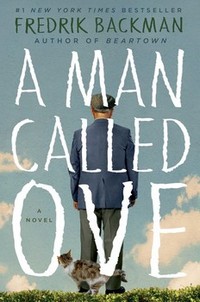

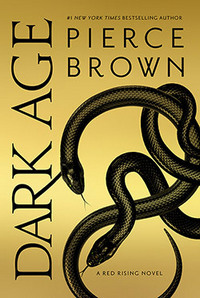
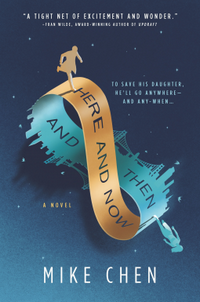

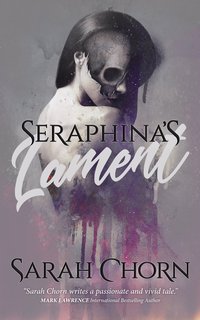
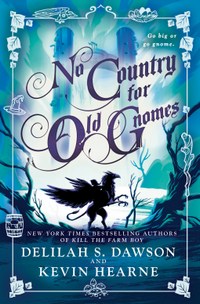
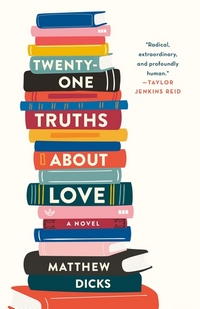
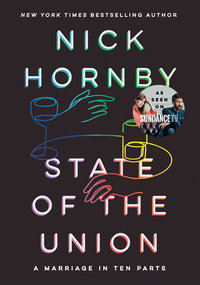
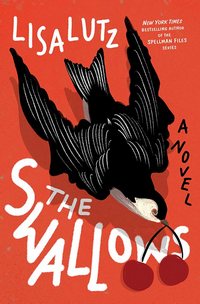
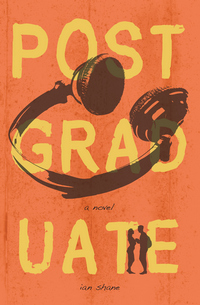
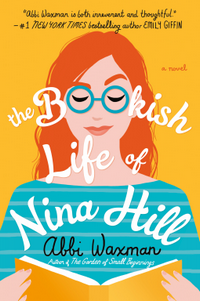
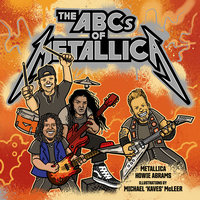




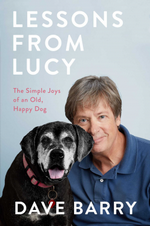

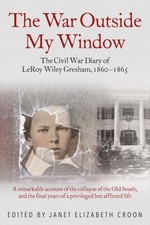
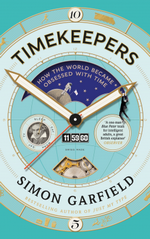

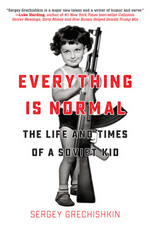
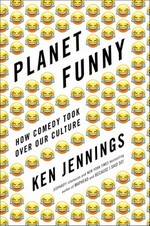

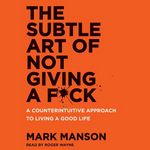
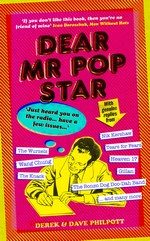
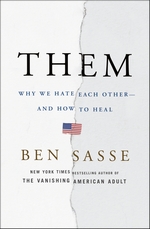
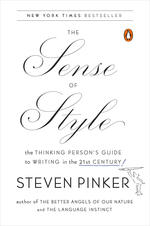
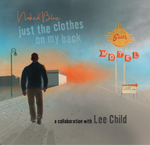

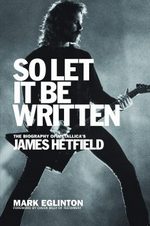


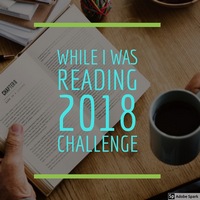
 Read a memoir or biography of a musician you like.
Read a memoir or biography of a musician you like.
